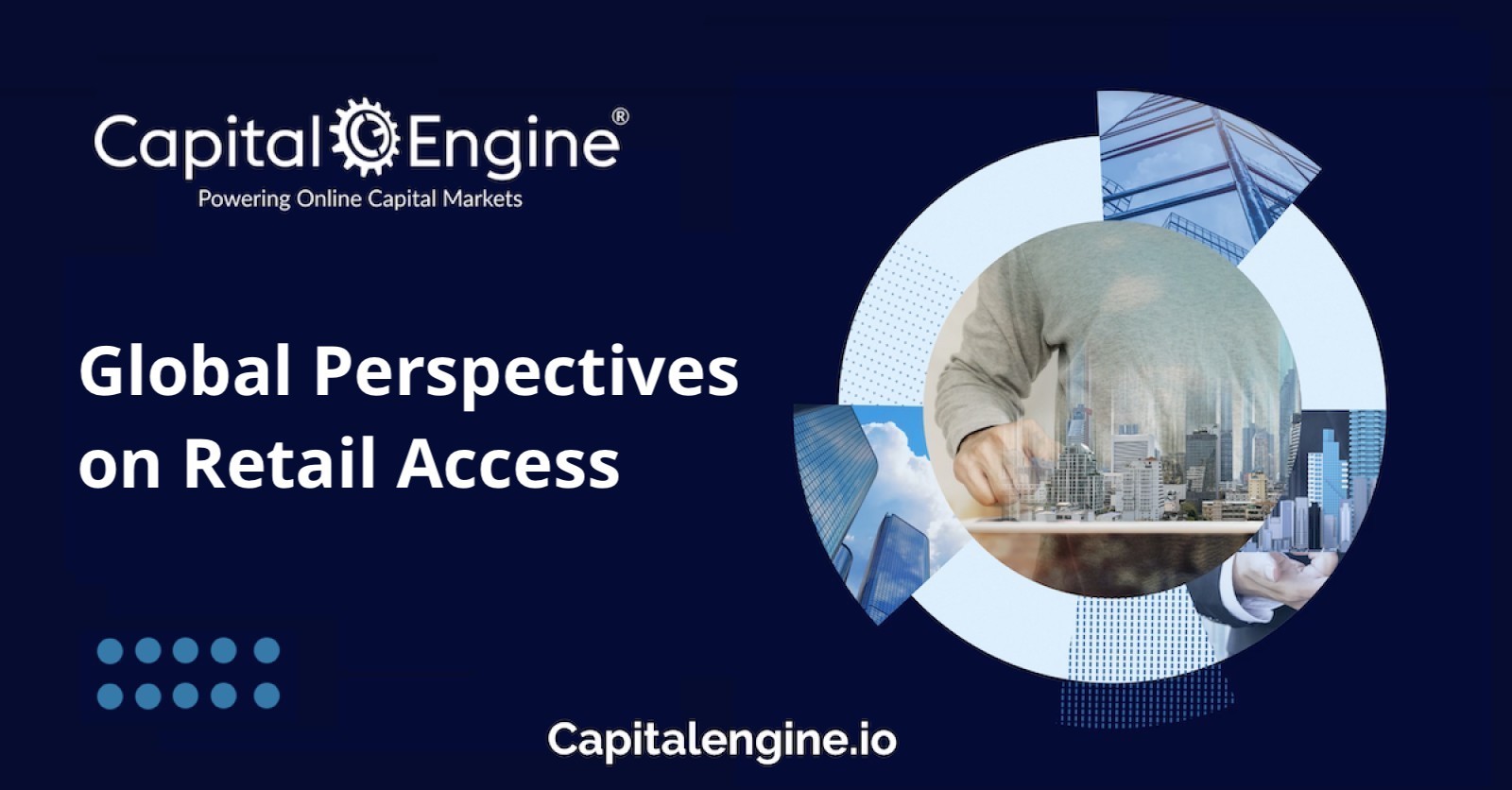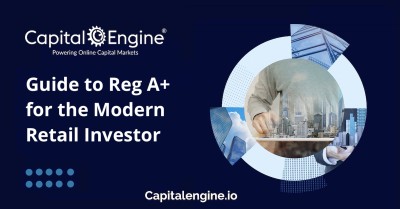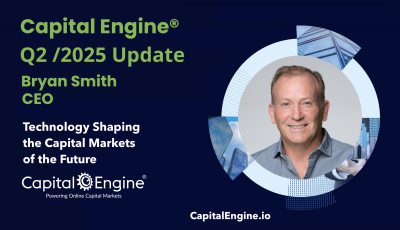Private Markets

Retail investor access to private markets is no longer just a U.S. conversation—it’s a global movement. While regulatory and technological developments in the United States are expanding the boundaries of what’s possible, European markets have already embraced more flexible frameworks for retail participation in private equity, private credit, and alternative investments. This week, we explore how Europe is leading in democratizing private capital access, and how U.S. policymakers and platforms can learn from their approach.
A Tale of Two Markets: Europe vs. the U.S.
Europe has adopted a more progressive stance toward retail access to private markets through structures such as:
These vehicles enable retail participation in traditionally illiquid and institutional-only assets—ranging from infrastructure to venture capital—while offering a level of investor protection and regulatory oversight suitable for mass-market adoption.
By contrast, the United States has historically restricted access to private markets via accredited investor rules and strict limitations on retail access to private funds. While recent SEC actions have begun loosening these boundaries—such as removing the 15% cap on private investments in closed-end funds—the U.S. remains behind in offering retail-friendly access to alternative assets at scale.
Europe’s Lead: ELTIF 2.0 and Retail Inclusion
The most significant leap forward in Europe came with ELTIF 2.0, which went into effect in January 2024. The updated rules:
Crucially, ELTIFs can be marketed to retail investors across the EU with a simplified disclosure regime, enabling cross-border fund distribution via passporting. Fund managers like Amundi, BlackRock, and Partners Group have already launched ELTIF products targeting mass-affluent and advised retail investors.
Results: According to the European Fund and Asset Management Association (EFAMA), retail capital in ELTIFs grew from €7.5 billion in 2022 to €18.2 billion by Q1 2025, with over 70% of inflows coming from retail distribution channels.
The U.S. Catch-Up: A Work in Progress
Recent moves by the SEC indicate a desire to follow Europe’s lead. The May 2025 repeal of the 15% cap on private investments in closed-end retail funds and support for interval and evergreen fund growth suggest an evolving approach.
In addition:
However, U.S. investors still face hurdles:
Learning from Each Other
What the U.S. Can Learn from Europe:
What Europe Can Learn from the U.S.:
Looking Ahead
As retail investors continue to seek returns beyond the public markets, the pressure is on for policymakers and fund managers to develop efficient, scalable, and transparent access points. The global trend is clear: private markets are going public—but in a private way.
Platforms like Capital Engine® are well-positioned to support this transition by:
Explore Investment Opportunities
About Capital Engine®
Capital Engine® provides forward-thinking organizations with efficient and scalable private capital and investor management solutions, for both traditional and digital assets.
Built for high-performance capital raising, our technology helps leverage the opportunity to better originate and showcase a diverse selection of private investment deals and offer these to investors i.e. a deal’s potential viability can be better assessed, market appetite determined and transaction promptly closed.
Our clients include broker dealers, family offices, wealth managers, incubators, accelerators, social impact and real estate funds, in providing customized SaaS solutions to power private capital and alternative investment platforms, with a strong focus on investor management services.
Interested in Raising Capital
Request a Call / Demo
A Tale of Two Markets: Europe vs. the U.S.
Europe has adopted a more progressive stance toward retail access to private markets through structures such as:
- ELTIFs (European Long-Term Investment Funds)
- UCITS-compliant alternatives
- Alternative Investment Funds (AIFs) open to non-professional investors
These vehicles enable retail participation in traditionally illiquid and institutional-only assets—ranging from infrastructure to venture capital—while offering a level of investor protection and regulatory oversight suitable for mass-market adoption.
By contrast, the United States has historically restricted access to private markets via accredited investor rules and strict limitations on retail access to private funds. While recent SEC actions have begun loosening these boundaries—such as removing the 15% cap on private investments in closed-end funds—the U.S. remains behind in offering retail-friendly access to alternative assets at scale.
Europe’s Lead: ELTIF 2.0 and Retail Inclusion
The most significant leap forward in Europe came with ELTIF 2.0, which went into effect in January 2024. The updated rules:
- Lowered investment minimums
- Relaxed diversification and redemption restrictions
- Broadened eligible asset classes to include SMEs, real assets, and even crypto/blockchain equity
Crucially, ELTIFs can be marketed to retail investors across the EU with a simplified disclosure regime, enabling cross-border fund distribution via passporting. Fund managers like Amundi, BlackRock, and Partners Group have already launched ELTIF products targeting mass-affluent and advised retail investors.
Results: According to the European Fund and Asset Management Association (EFAMA), retail capital in ELTIFs grew from €7.5 billion in 2022 to €18.2 billion by Q1 2025, with over 70% of inflows coming from retail distribution channels.
The U.S. Catch-Up: A Work in Progress
Recent moves by the SEC indicate a desire to follow Europe’s lead. The May 2025 repeal of the 15% cap on private investments in closed-end retail funds and support for interval and evergreen fund growth suggest an evolving approach.
In addition:
- The SEC is considering an expansion of the accredited investor definition, making private offerings more broadly available.
- Discussions around retirement account inclusion for private funds (e.g., within IRAs and 401(k)s) are gaining traction.
- Platforms like Capital Engine® are actively working to develop compliant infrastructure for cross-border and U.S. retail access, mimicking Europe’s passporting capabilities with robust KYC, AML, and disclosure standards.
However, U.S. investors still face hurdles:
- Complex and overlapping regulations
- Limited access to diversified private market funds
- Few retail-friendly distribution platforms compared to Europe
Learning from Each Other
What the U.S. Can Learn from Europe:
- Unified fund structures like ELTIFs simplify retail participation
- Cross-border fund marketing expands reach and scale
- Flexible redemption features (even with illiquidity) help meet investor needs
What Europe Can Learn from the U.S.:
- Deeper secondary market infrastructure, such as platforms that enable fractionalization and liquidity events
- Advanced fintech innovation, as seen with Capital Engine®, Carta, and other private market enablers
- Robust investor education tools integrated into platforms
Looking Ahead
As retail investors continue to seek returns beyond the public markets, the pressure is on for policymakers and fund managers to develop efficient, scalable, and transparent access points. The global trend is clear: private markets are going public—but in a private way.
Platforms like Capital Engine® are well-positioned to support this transition by:
- Providing turnkey infrastructure for sponsors and funds
- Enabling digital onboarding, compliance, and investor management
- Facilitating secondary liquidity through integrated trading solutions
Explore Investment Opportunities
About Capital Engine®
Capital Engine® provides forward-thinking organizations with efficient and scalable private capital and investor management solutions, for both traditional and digital assets.
Built for high-performance capital raising, our technology helps leverage the opportunity to better originate and showcase a diverse selection of private investment deals and offer these to investors i.e. a deal’s potential viability can be better assessed, market appetite determined and transaction promptly closed.
Our clients include broker dealers, family offices, wealth managers, incubators, accelerators, social impact and real estate funds, in providing customized SaaS solutions to power private capital and alternative investment platforms, with a strong focus on investor management services.
Interested in Raising Capital
Request a Call / Demo
Latest Articles





